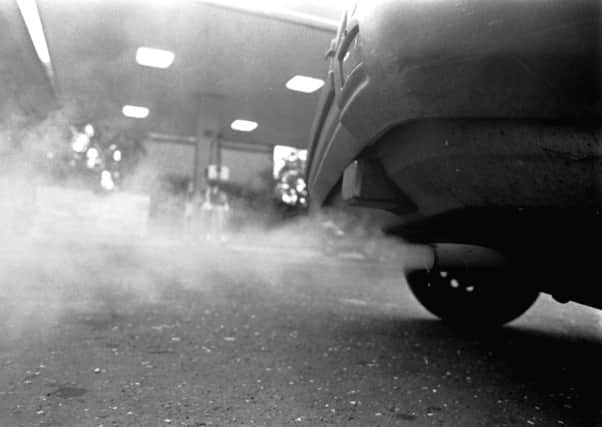Leaders: Pollution levels prove cars are killing us


The statistics used by the researchers are those for which obesity was a factor officially listed on death certificates. They did not, for example, include all cases where obesity was a contributory factor in a heart attack, a stroke, or cancer. The link between obesity and a greater vulnerability to these illnesses is well established.
Also, the researchers made a number of assumptions in estimating the number of Scots who die as a result of air pollution because air pollution is not listed as a cause of death, but they identified accepted related causes of deaths and conditions. These assumptions may be reasonable ones to make, but they are assumptions none the less.
Advertisement
Hide AdAdvertisement
Hide AdYet even with these caveats, these are shocking figures. They succeed in challenging some of our most basic thinking on what poses a risk to our health. And they demand a response, in both policy formulation and personal action.
The figures will come as a surprise to many because the general perception is that in an age of catalytic converters and the Clean Air Act, we assume that things have been getting gradually better on the pollution front. After all, we no longer live in Victorian conditions, with smoke belching from scores of factories in every Scottish city, and buildings caked in a black layer of soot. A commonly held view is that now the days of visible smog are behind us, dirty air deaths are too.
We may have thought that air pollution was a problem in the BRIC countries (Brazil, Russia, India and China), with their emerging economies hungry for growth regardless of how the energy is generated, but we may have been blind to its lethal effects closer to home.
The scale of deaths – even if an overestimate – is a large and alarming one. The culprit in 2014 is not, of course, industrial – here in Scotland a relatively small proportion of our energy generation and industrial production is a result of burning coal, for example.
No, the explanation is much simpler, and in many ways much more of a challenge: it is our ever-increasing use of cars.
The attitudinal and policy shift required by such a realisation is substantial. It requires us to see motoring not as a part of consumer culture or an expression of individualism, but as a health issue. It requires us to see efforts to get people off the roads and onto public transport as a way of saving lives. And it requires us to see the push to get people walking and cycling instead of taking the car as a major intervention in improving Scotland’s health .
This is a challenge for policy-makers, certainly, and it adds a new dimension to measures usually presented as ways of saving the planet from greenhouse gases. But it is a challenge that has to be faced by individual motorists too.
Na zdrowie!* to Scotland’s Poles
APPARENTLY, the Scottish lifestyle is catching on. Or so it would appear, given the explanation being offered for a dramatic rise in the consumption of Scotch whisky in Poland.
Advertisement
Hide AdAdvertisement
Hide AdIt is suggested that the surge in exports to the Eastern European country is due to Polish immigrants to Scotland getting a taste for a dram and then taking their new drinking habits back home with them.
This is a heartening development – it is good to know that our national drink has such a positive effect on immigrants and visitors that it becomes part of their lives, and is not just something they abandon when they board the plane to go back home.
But it also leads to an interesting train of thought: what other Scottish habits have Poles picked up while in our midst, and subsequently taken home to their motherland?
Will we see a surge in the Polish market for iconic Scottish treats such as Tunnock’s Tea Cakes and Irn-Bru? Will the People’s Friend see a circulation boost in Gdansk? Will the Poles’ attitude to their national football team start to demonstrate a curious mixture of blind optimism and bleak fatalism? Will Polish eateries start serving up white pudding suppers, alongside the more traditional pierogi dumplings and kielbasa sausages?
Perhaps the Polish language will start to incorporate translations of wise and philosophical Scottish sayings, such as “ah kent his faither”, and “what’s for ye’ll no’ go past ye”.
And perhaps the Poles will start to notice a greater propensity to heated argument when constitutional change is discussed.
It fair makes you proud, as they (probably) say in Warsaw.